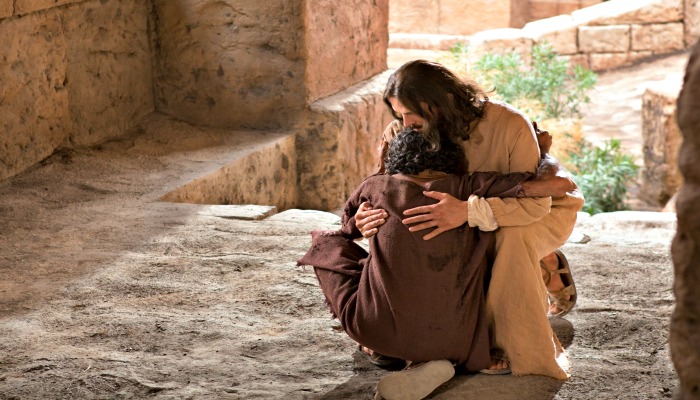Repentance: 5 Things It is NOT
Repentance. It’s up there with words like abomination and whoremonger, and it’s about as comfortable as your bishop’s office. Why does the topic of repentance put people on edge? Let’s demystify one of the Savior’s greatest gifts to His disciples.
1. Repentance is not scary.
 Okay, it’s a little scary. When we repent, we accept justice and all the consequences of our actions. Depending on the severity of the sin, those consequences can seem like fire and brimstone. What will my parents think? What if I have to leave my mission early? But the moment we confess we were in the wrong, we allow Christ’s mercy to pour into our lives. With His light, our burdens will become lighter. And with His perfect love, we can cast out all fear (1 John 4:18).
Okay, it’s a little scary. When we repent, we accept justice and all the consequences of our actions. Depending on the severity of the sin, those consequences can seem like fire and brimstone. What will my parents think? What if I have to leave my mission early? But the moment we confess we were in the wrong, we allow Christ’s mercy to pour into our lives. With His light, our burdens will become lighter. And with His perfect love, we can cast out all fear (1 John 4:18).
2. Repentance is not easy.
For some of us, it isn’t scary at all. Forgiveness of our sins is just one mumbled, half-asleep prayer away. For repentance to change us, however, we need to change our hearts. But the joy we can feel from forsaking our sins outweighs any personal sacrifices we must make. And I have never heard anyone say, “I wish I had never repented.” True repentance requires a significant amount of elbow grease, yet it will always be infinitely easier than what the Savior endured.
The joy we feel outweighs any personal sacrifices we make.
3. Repentance is not a one-time offer.
 Some sins are hard to shake, so we can never let ourselves think we only deserve so much mercy before it runs out and our opportunity to repent has passed. Let’s see what an apostle (Apostle?) has to say:
Some sins are hard to shake, so we can never let ourselves think we only deserve so much mercy before it runs out and our opportunity to repent has passed. Let’s see what an apostle (Apostle?) has to say:
However many chances you think you have missed, however many mistakes you feel you have made or talents you think you don’t have, or however far from home and family and God you feel you have traveled, I testify that you have not traveled beyond the reach of divine love. It is not possible for you to sink lower than the infinite light of Christ’s Atonement shines. – Elder Jeffrey R. Holland
4. Repentance is not a backup plan.
It’s not the first-aid kit we use in spiritual emergencies. It is a gift we can all partake of every day! We will feel greater confidence and peace of mind. Repenting daily does not mean we are morally weak, but that we are humble, obedient, and determined to progress. Repentance is not punishment for sinners—it is the privilege of saints.
Repentance is not punishment for sinners—it is the privilege of saints.
5. Repentance is not living in the past.
 Sometimes even after we’ve fully repented, we find it hard to forgive ourselves. But God does not want us to stay harrowed up in our sins forever. When we repent and forgive ourselves, we can make peace with the past, find purpose for the present, and look forward to the future. As President Monson said, your future is not as grim as your sins but “as bright as your faith.”
Sometimes even after we’ve fully repented, we find it hard to forgive ourselves. But God does not want us to stay harrowed up in our sins forever. When we repent and forgive ourselves, we can make peace with the past, find purpose for the present, and look forward to the future. As President Monson said, your future is not as grim as your sins but “as bright as your faith.”
Now that I have evaded the question for so long, what is repentance? It will mean something different for everyone. It is an all-encompassing gift we apply on a very personal level. I love how Young Men General President Stephen W. Owen describes repentance in his October 2017 conference talk:
I testify that the moment we set foot on the path of repentance, we invite the Savior’s redeeming power into our lives. That power will steady our feet, expand our vision, and deepen our resolve to keep moving forward, step by step, until that glorious day when we finally return to our heavenly home and hear our Father in Heaven say to us, “Well done.”
Perhaps this has not been your experience. But repentance does not show us what was or was not, what is or is not, but reveals to us what could become. And as we learn more about it, I think we could become something great.
Is Confession to God or Church Necessary?
Articles of Faith Part Four: First Principles and Ordinances
4 Things Way Too Many Mormons Are Worried About


